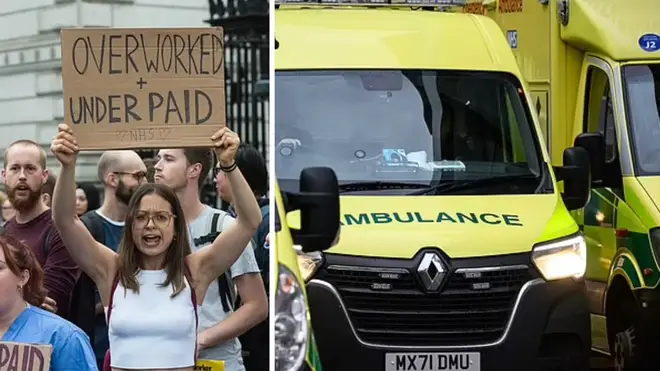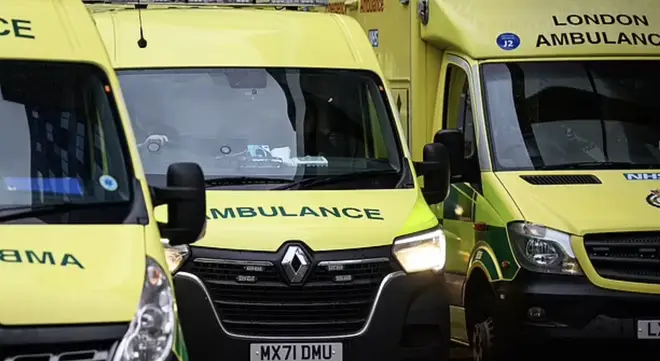
Henry Riley 4am - 7am
30 November 2022, 15:04 | Updated: 30 November 2022, 17:44

More than 10,000 ambulance workers have voted to strike across nine trusts in England and Wales, the GMB union has announced.
Paramedics, emergency care assistants and call handlers are among staff across nine trusts in England and Wales that have voted to strike.
The announcement comes despite warnings from a senior NHS official that it will leave response times 'incredibly stretched and after 80,000 Unison members also voted in favour of taking industrial action yesterday.
The GMB said its members are set to walk out in the following trusts: South West Ambulance Service, South East Coast Ambulance Service, North West Ambulance Service, South Central Ambulance Service, North East Ambulance Service, East Midlands Ambulance Service, West Midlands Ambulance Service, Welsh Ambulance Service and Yorkshire Ambulance Service.

Read More: HSBC to close 114 branches across UK - is yours on the list?
The GMB said workers across the ambulance services and some NHS trusts have voted to strike over the Government's 4% pay award, which it described as another "massive real-terms pay cut".
The union will meet with reps in the coming days to discuss potential strike dates before Christmas.
Rachel Harrison, GMB national secretary, said: "Ambulance workers - like other NHS workers - are on their knees.
"Demoralised and downtrodden, they've faced 12 years of Conservative cuts to the service and their pay packets, fought on the frontline of a global pandemic and now face the worst cost-of-living crisis in a generation.
"No one in the NHS takes strike action lightly - today shows just how desperate they are.
"This is as much about unsafe staffing levels and patient safety as it is about pay. A third of GMB ambulance workers think delays they've been involved with have led to the death of a patient.
"Something has to change or the service as we know it will collapse.
"GMB calls on the Government to avoid a winter of NHS strikes by negotiating a pay award that these workers deserve."
Steve Barclay, Health Secretary condemned the action, which comes ahead of "a challenging winter", and claimed union pay demands are "not affordable".
Mr Barclay said: "I'm hugely grateful for the hard work and dedication of NHS staff and deeply regret some will be taking industrial action – which is in nobody's best interests as we approach a challenging winter.
"Our economic circumstances mean unions' demands are not affordable — each additional 1 per cent pay rise for all staff on the Agenda for Change contract would cost around £700million a year."
He added: "Our priority is keeping patients safe during any strikes and the NHS has tried and tested plans to minimise disruption and ensure emergency services continue to operate.
"My door remains open to discuss with the unions ways we can make the NHS a better place to work."
Britain's last nationwide strike involving paramedics took place in the winter of 1989 to 1990, and the government was forced to call upon the Army, police and volunteer drivers.
Armed Forces personnel could again drive ambulances and stand in for frontline hospital workers during the NHS strikes, it was claimed this week.
Nurse strikes are already scheduled for December 15 and December 20, with up to 100,000 staff expected to take part across 76 locations.
Health bosses warn strikes will put lives at risk and force them to cancel tests and operations at a time when a record 7.1 million people are on waiting lists.
Unions must provide two weeks notice for any industrial action, meaning an ambulance strike could conceivably take place in mid-December or during the Christmas and New Year period.